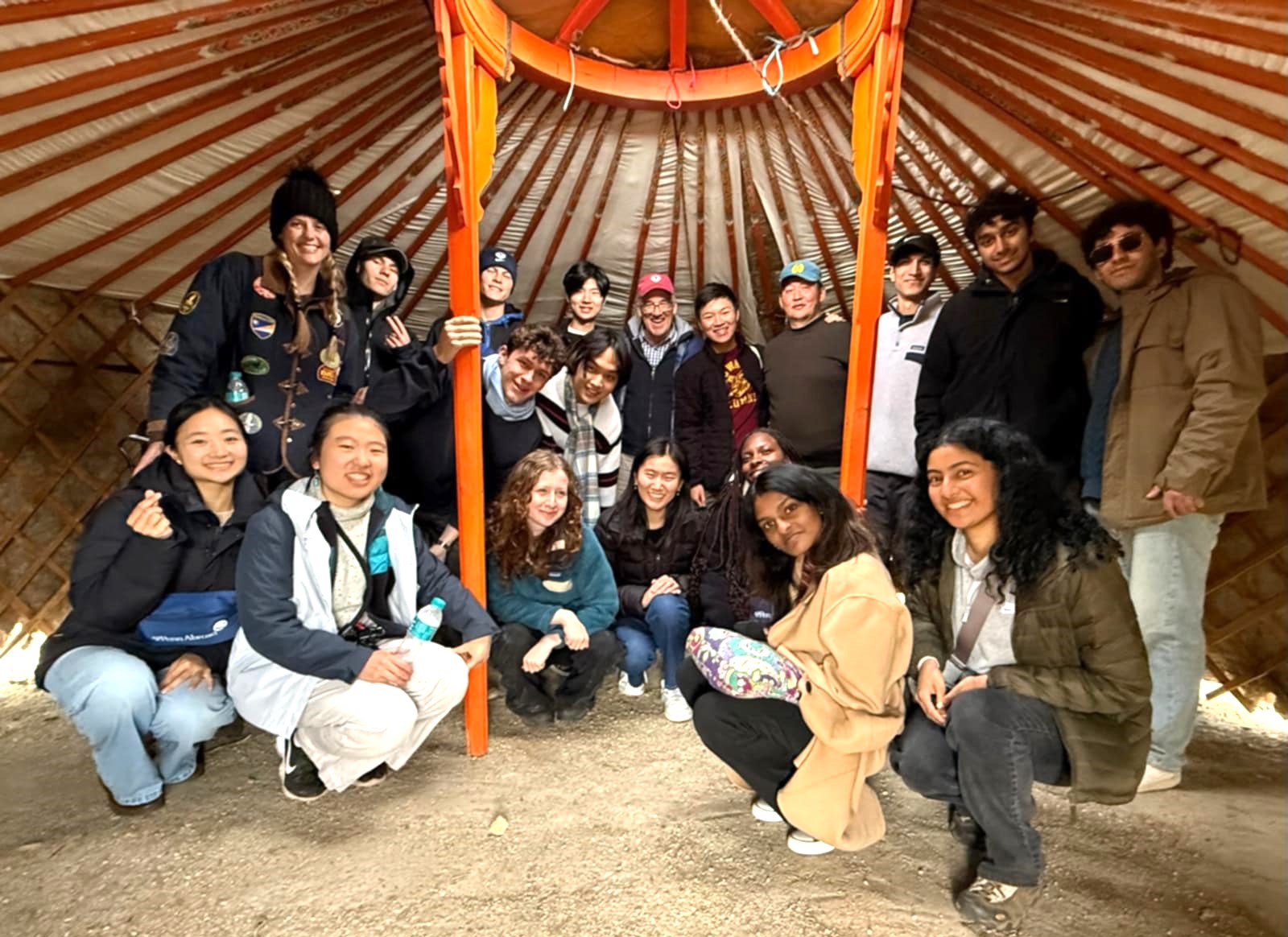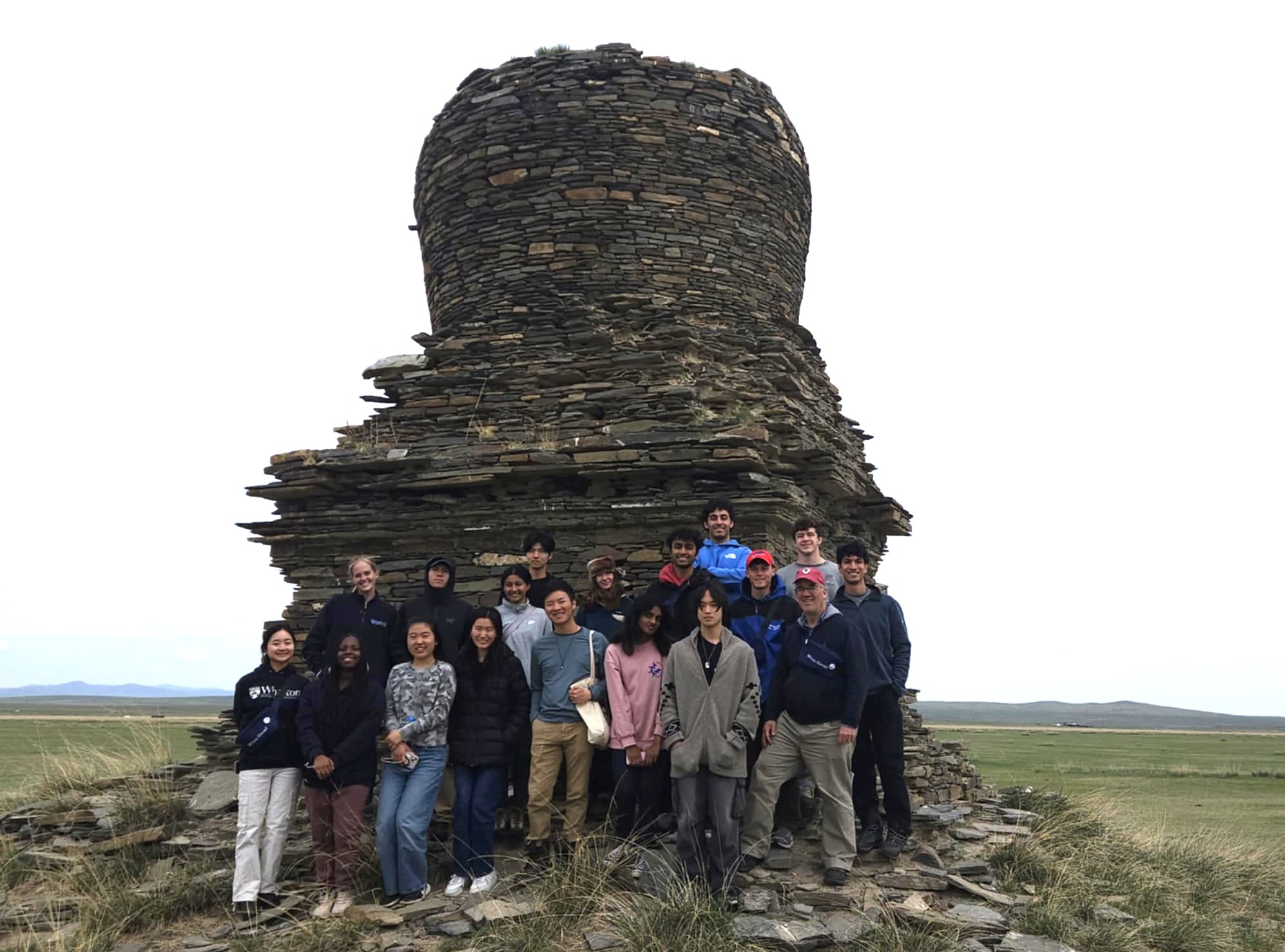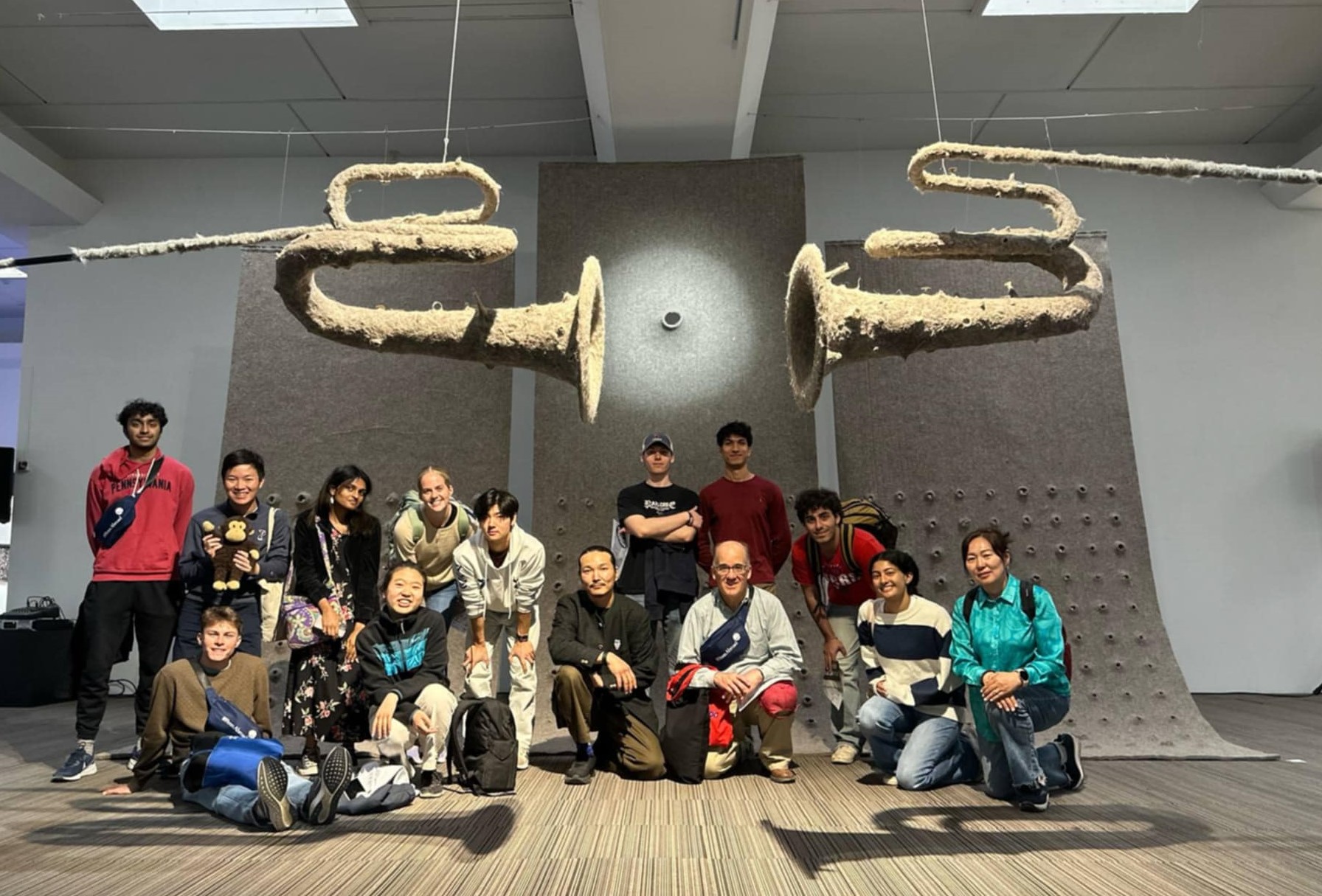From May 16 to May 23, the ACMS hosted the UPenn Global Seminar in Mongolia for the third consecutive year, welcoming 16 students led by Professor Christopher Atwood.
During their stay, the students explored Mongolian pastoral nomadism and examined how Mongolia’s economy, literature, and steppe empires were historically built upon grasslands and livestock. They also studied how Mongolians have consistently used the foundations of empire to create lasting sedentary structures—including funerary complexes, Buddhist monasteries, socialist-era boarding schools, and modern urban capitals.
As part of the academic and cultural itinerary, the group visited the Hustai National Park, Kharkhorin city, and Ugii Lake, where they explored the ruins of ancient temples and encountered local wildlife. They also visited a Mongolian Bankhar dog breeding project to learn about the role of this traditional guard dog in conservation and herding. In Kharkhorin, they visited a local boarding school to better understand Mongolia’s educational system and its historical development.
Culturally, the students engaged with nomadic families, participated in a hands-on ger building activity, and met with contemporary Mongolian artists. They also visited the Zanabazar Art Museum and the Mongolian Art Gallery to explore both historical and modern Mongolian art.


